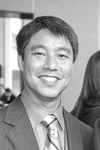
David Inoue
On May 18, Vincent Chin would have turned 65. Ten days earlier, on May 8, Ahmaud Arbery would have turned 26. One, Asian American, the other, African American, both men hunted down by two white men and brutally murdered in modern-day lynchings. Chin died at the age of 27, Arbery was 25, barely into adulthood. The symmetry in their killings is frightening and shows that things have not changed in the nearly 38 years that separates their murders, perhaps even going back to the 1871 Chinese Massacre or the first documented lynching in 1835.
Indeed, the past two months have seen the proliferation of the virulent xenophobia and racism against Asian Americans just like what drove Ronald Ebens and Michael Nitz to kill Vincent Chin.
The 1980s were filled with images of Detroit autoworkers destroying Japanese-made automobiles; now, we see our highest leaders blaming China for anything related to COVID-19.
While China is not without blame, it is not at fault for everything. Just as Ebens and Nitz blamed Chin for the then-trade war with Japan, Asian Americans today are now being blamed for the origination of COVID-19 in China.
Where Chin was misidentified as Japanese, it is just as likely today that someone Japanese might be identified as Chinese and targeted for harassment. What may have seemed like a funny joke before, there are shirts available online that say, “Yes I’m Asian, No I’m not Chinese.”
A few years ago, everyone was proclaiming “Je suis Charlie” to stand in solidarity with Charlie Hebdo, the French satirical magazine that had been attacked for publishing offensive content. Today, the Asian American community needs more people standing in solidarity with us to proclaim that they, too, are Chinese American.
Which brings us back to Ahmaud Arbery. If we as Asian Americans seek solidarity from others, we must pursue solidarity with Arbery. And with his name are the names of Breonna Taylor, Michael Brown, Philando Castile, Trayvon Martin and many more. Just as the injustice of Chin’s murder brought the Asian American community together, we must recognize the injustice of their deaths and seek justice in response.
We all have our individual experiences of racism, and yet many of the stories are the same as with Chin and Arbery. More importantly, we must see these stories as a part of a shared unfortunate history in our country. Though the arc of the moral universe may bend toward justice, it remains littered with the shortcomings of our past.
The genocide of Native Americans, slavery, the Chinese Exclusion Act, Jim Crow and, of course, World War II Japanese American incarceration provides a continuous chain of how our country has always sought to oppress minority communities in not-so-subtle ways. The specific target may change, but the intent has remained continuous.
But fighting for justice is not just opposing the obviously immoral. It means advocating for quality publicly provided education for everyone, without regard to one’s zip code. It is supporting fair wages for everyone, so that we are not arguing that it is more beneficial to receive unemployment insurance than working a regular workweek. It is not declaring workers to be essential, but not paying an essential wage rate. It is ensuring equal access to quality health care and eliminating health disparities. COVID-19 has ravaged minority communities disproportionately and with dire consequences.
There can be a positive ending. As noted, the arc does bend toward justice. Japanese Americans demanded and got an apology from our government. It is time that we do the same for other communities that have been ravaged by past policies. If we can achieve redress, we can also provide reparations.
Theologian James Cone said, “People hear other stories about Jesus that enable them to move beyond the privateness of their own stories.” We need to hear these other communities’ stories as Asian Americans to move beyond our individual experiences and recognize the greater truths of oppression in this country.
It is only in working together that we will achieve equality and equity for all. The systematic racism against any one of us is part of a whole system opposed to and dividing us all. When we say we want to “Stop Repeating History,” it is the entirety of our nation’s history that carries the scars of racism, and it must all be stopped.
David Inoue is executive director of the JACL. He is based in the organization’s Washington, D.C., office.



